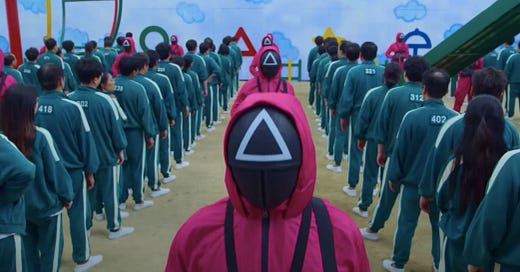Are you watching Netflix's most popular shows?
Squid Game is more the future of Netflix than you realise.

What are people watching on Netflix? Lucas Shaw and Yasufumi Saito at Bloomberg recently took a dive into available data, pushing past blanket statements offered by Netflix like: “26 million people watched this show in the first 28 days.”
What does that mean and what are people actually watching? As per the report:
TV shows are a bigger deal on Netflix th…




